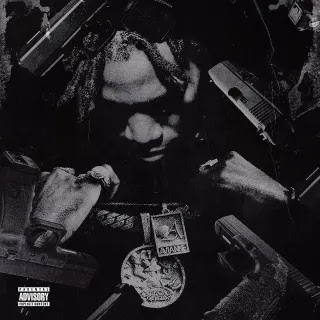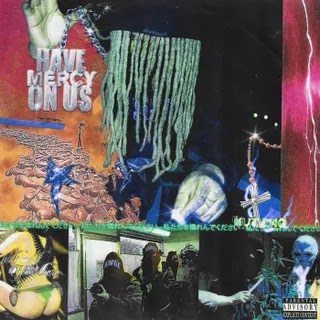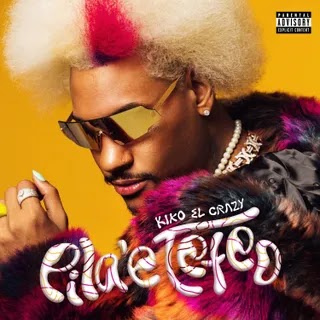Originally released in 1994, the Parisian rapper’s second album brought a particularly French sensibility to hip-hop, countering the hegemony of American artists—and the English language itself.
One of the most frequent accusations levied at French music in the early 1990s—before French touch and the Serge Gainsbourg renaissance—was that the country only ever seemed to produce weakling copies of Anglo-American music styles, à la Johnny Hallyday’s preening Gallic Elvis. So it was a formidable shock when MC Solaar heaved into view with his 1991 debut, Qui Sème Le Vent Récolte Le Tempo. Thanks to Solaar’s nonchalant flow and a healthy dose of jazz instrumentation, the album packed a particularly French sensibility into hip-hop, reeking of Left Bank cafés and vintage Citroëns even as Solaar’s lyrics explored the underbelly of Parisian society.
Three years later, Solaar’s second album, Prose Combat—now being re-released as part of a wider campaign around Solaar’s early LPs—took this languid Parisian charm and ratcheted up the commercial appeal. The album’s cool rap finesse would propel Solaar to the kind of international acclaim that had eluded his compatriots, as he signed with cult UK label Talkin’ Loud and appeared on the Stolen Moments: Red Hot + Cool album alongside the Roots and the Pharcyde. If you wanted to introduce someone to French hip-hop in the mid ’90s, you would inevitably play them Prose Combat’s “Nouveau Western”: Its velvety Gainsbourg sample (from “Bonnie and Clyde”) and trilling saxophone line, crossed with Solaar’s gently authoritative baritone, proved that other countries didn’t have to fall so strictly in line with America’s rap hegemony.
That’s not to say that Prose Combat doesn’t take influences from the U.S.: The album’s jazz-funk-heavy production, boom-bap beats, and elongated scratches (at the hands of producer/DJ Jimmy Jay) clearly owe a huge debt to DJ Premier, while Solaar’s nimble yet relaxed flow, like a man calmly picking him way through a raging torrent of honey, is reminiscent of Guru. (It is no surprise at all that Guru got Solaar involved in his Jazzmatazz project in 1993). But Solaar proved definitively on Prose Combat that the French language, with its throaty (and very un-Anglophone) “r”s, nasal vowels, and constantly evolving slang and even stress patterns, could bring a beautifully melodic trill to hip-hop that differentiated it from American styles.
For listeners who don’t understand French, Solaar’s acrobatic lyrical tone is a delight to be savored musically, his voice dancing around the beat with the quiver of a double bass. (Consider the wonderfully percussive cadence on the line, “De la rime et des mots dans l’art d’arrimer les mots,” from Prose Combat’s “Superstarr.”) For those who paid more attention in French class, Solaar reveals himself as a masterful storyteller, like a Gallic Nas: On “Nouveau Western,” he tells the tale of Harry, a modern cowboy type who heads from Arizona to Paris, where he eventually ends up in jail. Throughout, Solaar revels in exquisite details: the suds on a glass of beer, the zinc of the bar beneath it.
The production, too, is sparkling throughout, a sinuous mixture of well-chosen jazz-funk licks, finely weighted beats, occasional live bass, and agile scratching that tied Prose Combat into wider trends in French music—in particular, the country’s nascent house music scene. Hubert Blanc-Francard (Boom Bass) and Philippe Cerboneschi (the late Philippe Zdar), who would later find fame as Cassius, worked alongside Jimmy Jay on Solaar’s first two albums and with DJ Mehdi on the following two. And it was Zdar who decided to use a Fairchild compressor—a piece of gear more associated with 1960s pop than hip-hop—on Prose Combat, giving the album a smooth but punchy dynamic range that was subtly different from American productions. The opening to Prose Combat’s “Dévotion,” with its filtered bass and echoing percussive strikes, sounds like an obvious antecedent to the European deep house that Motorbass—Zdar and producer Étienne De Crécy—would nail on their dazzling debut album, Pansoul, in 1996.
To focus on the production may be to impose a rather Anglophone take on things: Solaar is a towering talent in his own regard, and a bigger star in France (and Francophone Africa) than Cassius could have ever hoped to be; Prose Combat, meanwhile, is one of the defining moments in French hip-hop, and French pop as a whole. Yet the links to electronic music producers and their unusual studio gear help underline why Solaar’s second album was such a key moment in the march of global hip-hop and its ever more localized scenes: This is a record that looked to U.S. rap and decided it could make changes—an album that took on the Anglo lyrical template and won. Twenty-seven years later, Prose Combat is a “Vive la différence” of musical diversity that positively purrs in its victory.
















0 comments:
Post a Comment